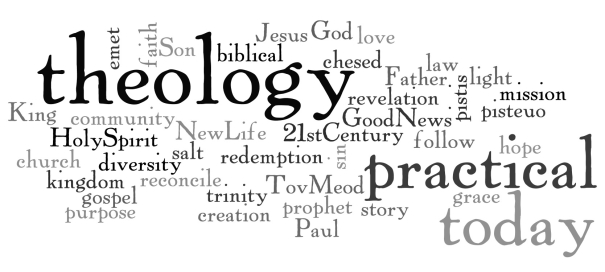There’s an old saying that goes like this: If I keep on doing what I’ve always done, I keep on getting what I’ve always gotten. Albert Einstein is attributed to having said something similar, coming at it from a different angle: Insanity is doing the same thing over and over again and expecting different results.
This is great advise and not necessarily rocket science (no disrespect to Mr. Einstein). Then how come behavioral change is so doggone difficult, especially when sin rears its ugly head? How often have we been determined to change our behavior, to change what we do so we could realize a different outcome? And the outcome? So often the same old results.

The Apostle Paul spoke to this in Romans 7:18-19…I have the desire to do what is good, but I cannot carry it out. For I do not do the good I want to do, but the evil I do not want to do—this I keep on doing. Paul reminds us that this is the frustration we live with while we are in the process of being transformed into the likeness of Jesus. Paul also reminds us of God’s grace and deliverance: Who will rescue me from this body of death? Thanks be to God, who delivers me through Jesus Christ our Lord! (Vs. 24-25)
Paul never suggested that we concede to living this life of frustration. Nor did Jesus. Jesus said he came that we may have life, and have it to the full (John 10:10). The answer, however, isn’t to simply change what we do. It doesn’t seem to get us there. Consider the following trustworthy saying:
If I keep on thinking what I’ve always thought,
then I’ll keep on perceiving what I’ve always perceived.
If I keep on perceiving what I’ve always perceived,
then I’ll keep on seeing what I’ve always seen.
If I keep on seeing what I’ve always seen,
then I’ll keep on doing what I’ve always done.
If I keep on doing what I’ve always done,
then I’ll keep on getting what I’ve always gotten.
I became aware with this saying half a life-time ago in a Fuller Seminary class. It changed my life! I was under the assumption that if I simply changed my behavior – what I was doing – then all might be well. But all wasn’t well and I knew it. And, just like Paul, trying simply to change what I did left me frustrated.
This saying reminds us that change in behavior comes from a change, first in our thinking, not just addressing the behavior. Granted, we can change our habits for a while, but if our thinking and perceiving is the same, we will revert back.
Jesus reminded the Pharisees (with strong language) of the danger of trying to address the behavior without changing our thinker/perceiver: What miserable frauds you are, you scribes and Pharisees! You clean the outside of the cup and the dish, while the inside is full of greed and self-indulgence.* Can’t you see, Pharisee? First wash the inside of a cup, and then you can clean the outside. (Matt. 23:25-26)
Jesus continued his critique of the Pharisees by calling them whitewashed tombs. (I don’t think I would ever want to hear Jesus call me a whitewashed tomb!)
We do want to change don’t we? (I’m assuming a response in the affirmative, but I could be wrong). But change doesn’t happen by merely changing what we do. This is probably what Paul was addressing when he suggested we are transformed by the renewing of our mind – our chooser/thinker/perceiver (Rom 12:2). Change comes from the inside. Change comes with the transformation of how we think and why think the way we do. The good news: God does the heavy lifting. Our job is to show up. But show up we must!
* The Kingdom New Testament translation suggests “moral flabbiness” in place of self-indulgence.


